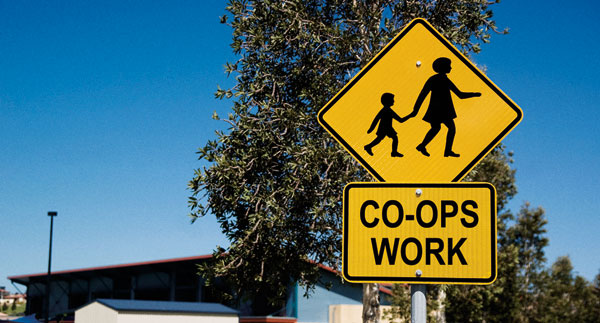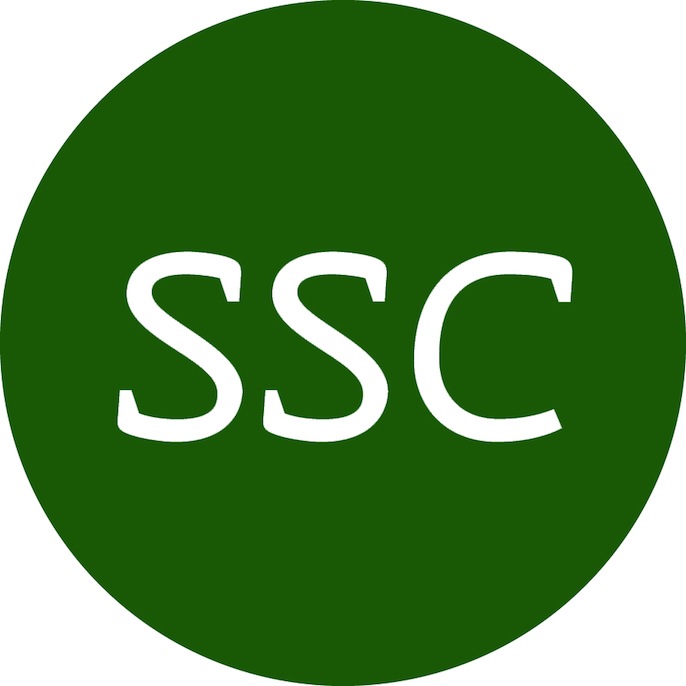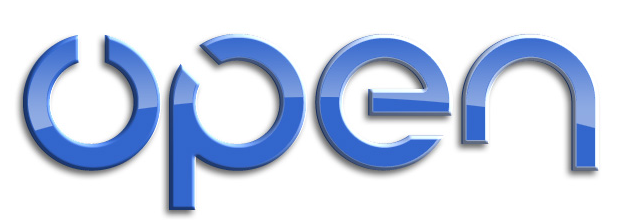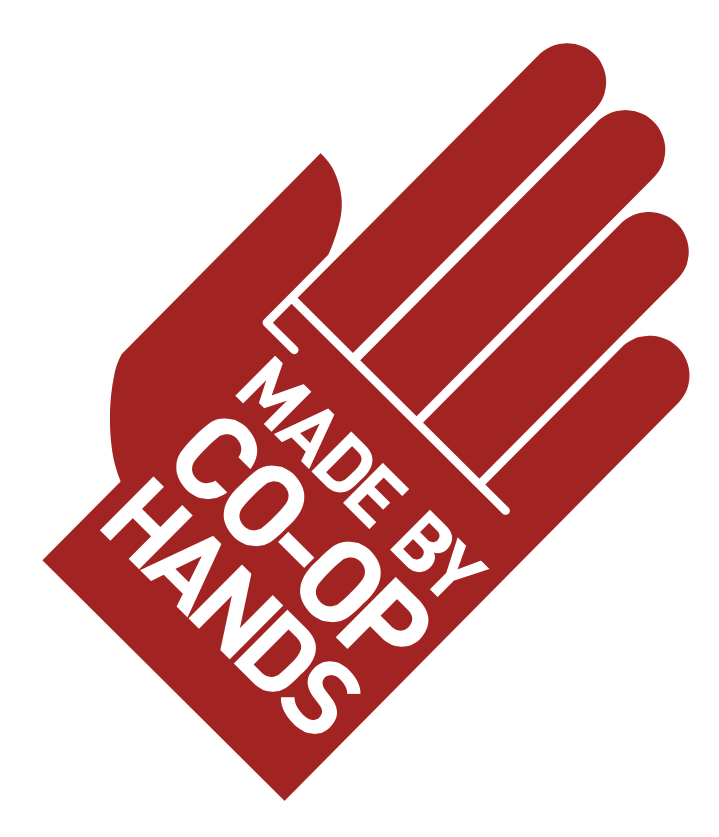My talk for the ‘Co-operative higher education/What next for the co-operative university?’ panel at the ‘Learning together: Perspectives in co-operative education‘ conference, December 9th 2014.
Conversion, dissolution, creation

Some of you may be aware of a bibliography I’ve been maintaining over the last year that is an attempt to collect anything written relating to co-operative higher education. At this early stage in our collective thinking it’s quite an easy task to keep on top of, but I hope one day to abandon this bibliographic project because the volume of literature has become to large. Until then, I hope you find it useful.
While writing a journal article earlier this year about co-operative higher education, I looked through the bibliography as it was then and found that each work would tend to focus on one of three different routes to co-operative higher education: Conversion, dissolution, and creation.
Conversion refers to the conversion of existing universities into constituted co-operatives.
Dissolution refers to the gradual dissolution of existing universities into defacto co-operatives from the inside out, perhaps subversively at times, through the formation of co-operative programmes of study, co-operative teaching and learning strategies, co-operative research groups, centres and institutes within the university.
Creation, as you can imagine, refers to the development of new forms of co-operative higher education which might take the form of universities as we recognise them today and might not.
As Stephen Yeo has recently written in a book chapter on co-operative higher education, mostly likely, we would see a range of different forms of co-operative higher education, “some might be as small as seminar rooms; others as large as science parks”; that is, the creation route intends to rethink not only the organisational and constitutional form of higher education but also its institutional, physical and spatial and pedagogic forms, too. It seeks to develop a co-operative higher education which recognises and builds on a long tradition of working class, self-managed, alternative, open and radical education. As a co-operative, it is neither public nor private higher education as we usually understand these terms, but instead open, autonomous, democratic, and held in common for the benefits of its members and society.
I want to make clear that if our aim is a broadly conceived co-operative higher education, I think we should be trying to pursue all three routes of conversion, dissolution and creation without prejudice of one over another. However, I also recognise that each of us will, for good reasons, prefer to focus our individual efforts on a particular route. For me, for the past four years, it’s been the creation route.
Labour, property and pedagogy
The categories I have started to use when trying to think of and indeed practice co-operative forms of higher education is that of ‘labour, property and pedagogy’. I think each of these are foundational categories with which we develop a new model for education.
To save time, I’m going to skip over a discussion about ‘property’, except to say that by this I’m referring to the idea of an ‘academic commons’, combining the principles, practices and legal framework of the open education movement with the co-operative movement’s principles, practices and legal framework of ‘common ownership‘.
By labour I don’t simply mean work, although that’s how we experience labour much of the time. No, by labour I refer to the capacity or potential of individuals to do something that is considered socially useful. Labour has a very concrete form that we can all recognise as well as an abstract, social, homogenous form that we are mostly unaware of but is uniquely characteristic of labour in a capitalist society, where the division of labour and the production of goods and services is undertaken through co-operation. From this perspective, teaching is a form of labour and so is learning. The academic undertakes labour and the student does, too. Each has the capacity to perform the labour of teaching and learning and at the level of higher education this division of labour can be a productive relationship where knowledge is not simply distributed, consumed or ‘banked‘ as Paulo Freire wrote critically about, but actively produced through a pedagogic relationship in which teacher and student learn from each other in their social context.

At the University of Lincoln, we recognise that this pedagogic relationship for the production of knowledge can be greatly enhanced, perhaps even accelerated, if teaching and learning is based on research that teachers and students do together. Such ‘research-based teaching and learning‘ is the basis of our teaching and learning strategy at the University of Lincoln and we call it Student as Producer.
I appreciate that it goes against the grain to refer to students as workers and learning as a form of labour, especially now when students are driven by government policy and a pedagogy of debt to assume the role of consumers.

Nevertheless, I’m by no means the first person to frame the role of students as workers and argue that their labour is both reproductive and productive. If you accept that both teachers and students co-operate through a division of labour to produce knowledge (and remember it’s the production of new knowledge that distinguishes a higher education), then we have a situation where labour is understood as the basis for a social, pedagogic relationship.

My point then is that in rethinking pedagogy, where the student is also understood as a producer of knowledge, we have to rethink the division of labour, too, and the roles we slip comfortably into as ‘teacher’ and ‘student’, producer and consumer. I think that a new form of co-operative higher education should challenge these roles and recognise that we have much to learn from each other.
What I want to focus on for the second half of my talk are some existing models of co-operation and how they might be applied to a co-operative form of higher education; one which is not primarily aimed at teaching students skills for the social factory, but instead aimed at students discovering for themselves the processes of knowledge production, within which we find our own place and meaning.
Models of co-operation

As well as being a lecturer at the University of Lincoln, I’m a founding member of a small co-operative for higher education in Lincoln called the Social Science Centre (SSC). The life of the SSC is very well documented on our website and elsewhere so I won’t go into any detail about it today, except to say that one of the discussions we’ve had within the Social Science Centre over the last few months is around that of membership: What categories of membership are appropriate for a higher education co-operative like ours? Should we distinguish between members of the co-operative and people who are primarily interested in using the SSC as a service without taking an active role in the running of the co-op? How do we define ‘active’ participation? How do we accommodate new members and ensure they understand the SSC and our responsibilities to each other? These types of questions are familiar to many member organisations, I’m sure.
For me, these discussions around membership at the SSC have further stimulated an interest in the constitutional models of higher education co-operatives. I think an appropriate constitutional model should help clarify the relationships and responsibilities between members with different needs and capacities and ultimately support the production of knowledge, which is what the work of research, teaching and learning in higher education aims to do.

We’re all familiar with Co-operatives UK’s model rules for worker, multi-stakeholder and consumer co-operatives. I was also pleased to see that Ed Mayo included ‘open co-operatives’ among his ‘five hopeful trends‘ for 2014. Earlier this year, Michel Bauwens of the P2P Foundation proposed four recommendations for a new era of open co-operatives:
- That coops need to be statutorily (internally) oriented towards the common good
- That coops need to have governance models including all stakeholders
- That coops need to actively co-produce the creation of immaterial and material commons
- That coops need to be organized socially and politically on a global basis, even as they produce locally.
I think much of this will sound familiar to you all, perhaps with the exception of the need for co-operatives to co-produce the immaterial and material commons. Michel argues that the “crucial innovation” of open co-operatives are new methods of reciprocity among co-operatives and private for-profit enterprises which aim to promote the building of both the immaterial and material commons. The devil is in the detail, but the basic message is clear enough: We build a commons as we build co-operative solidarity and the novel forms of reciprocity that are now widespread on the Internet are clearly having a recursive effect on the way we produce and consume both immaterial and material goods and on our subsequent expectations of social life.
Having read the recent report on Social Co-operatives by Pat Conaty for Co-operatives UK, it seems to me that open co-operatives are a form of ‘social’ or ‘solidarity’ co-operative native to the Internet Age. In the UK, social solidarity cooperatives are more often referred to as ‘multi-stakeholder co-operatives’, which I think is a thoroughly uninspiring name for them. Basically, social co-ops exist primarily for the benefit of society, rather than their members. That is, they must have clear social objectives, rather than, say, worker self-management or better prices for their customers. What is encouraging to me is that both social and open co-operatives are very much the off-spring of the traditional worker co-operative model, which has always been the most progressive and radical form of co-operative.

Reading the growing literature around the idea and practice of social solidarity co-operatives in Italy and Canada, I understand that they currently cater mainly to health and social care services for the elderly and work-integration for the disadvantaged. Education forms a part of their overall purpose but a relatively minor part. There are of course, similarities between health and educational services. The teacher, like the doctor or carer has among other things a pastoral role and increasingly the patient is encouraged to take a proactive, productive role in the improvement of themselves. Just as I’ve argued that student work is a form of labour, others have argued that patients also perform reproductive labour as they work on themselves with their carers.

In 2011, CICOPA, which represents the interests of worker and social co-operatives worldwide, approved the World Standards of Social Co-operatives, which defines the main characteristics of this relatively new model of co-operative, so we now have something clear to work with. What gives me some confidence in this model is that as well as their primarily social objectives, the model of governance in social co-operatives is still weighed towards worker members (i.e. labour):
“Worker-members should be represented at every possible level of the governance structure of a social cooperative. The representation of worker members should be higher than one third of votes in every governance structure… at least 51% of workers should be members. In addition, all the standards of the World Declaration on Worker Cooperatives should apply to worker-members.”
As well as the application of the 2005 Declaration on Worker Co-operatives, the document makes explicit that social co-operatives
“fundamentally share all the commonly agreed standards of the cooperative model, namely the definition, values and operational principles enshrined in the ICA Statement on the Cooperative Identity (Manchester, 1995) and in ILO Recommendation 193 on the Promotion of Cooperatives (Geneva, 2002).”
We might remember that the International Labour Organisation’s 2002 Recommendation on the Promotion of Cooperatives begins by recalling its first and foundational principle, that “labour is not a commodity“. This is an affirmation, albeit perhaps also an aspiration, that the ILO has held since its formation in 1919 with the Treaty of Versailles. Subsequently, since 2005, the international co-operative movement has also shared the conviction that “labour is not a commodity” as recognised in the CICOPA Declaration on Worker Co-operatives. Clearly, worker and social co-operatives recognise the problem of wage work as a decisive issue.
For us, working in higher education, if we agree that teaching and learning is labour that forms the basis of a social and pedagogical relationship, then how do we ensure that that relationship is not commodified? What can the co-operative values and principles and the lessons from the movement’s history bring to a reconception of the work of teaching and learning that attempts to overcome the commodification of research, teaching and learning? Because in much of UK higher education today, academics, students and our collective production of knowledge are being reduced to exactly that: commodities.
I don’t know how you feel about that, but I suspect that like it or not, in higher education we’re gradually becoming used to, if not accepting, of the commodification of all aspects of our work. And as prospective students and their parents calculate the extraordinary loans they need to take out to pay for their higher education, what can become a productive relationship between teacher and student is at first an exchange relationship where the student is purchasing the range of services offered by the university at the centre of which is the labour of teaching and learning and its derivative services of assessment and accreditation.
Towards a model
I want to end my talk by outlining a way forwards for one model of co-operative higher education. This is not intended to be the only model. As I’ve indicated, I hope that co-operative higher education will grow in diversity and federate in co-operative solidarity rather than consolidate into a single monolithic form as we see in the existing universities.
My thinking is the product of collective work through the Social Science Centre, through Student as Producer at the University of Lincoln and through many discussions with some of you here and others elsewhere.
- First, despite having talked a lot today about models of co-operation, we should start with a clear understanding of our intended pedagogic model and always be mindful that the institutional form and our chosen co-operative model are first and foremost derived from the pedagogical relationship that we’re aiming to create in our co-operative for higher education. For example, a pedagogical framework that is based on doing collaborative research, across a network of people, requires a different model than a more traditional, didactic pedagogical approach. In short, the pedagogical framework will define the membership categories and the form of governance in the co-operative, and most likely its physical, virtual and spatial form.
- Having established our pedagogical framework, we then need to look at existing models of co-operation. We need to break down the features of worker, social and open co-operatives, identifying their categories of membership, their overall purpose and the ways in which they distinguish between the production of goods and the provision of services, between physical and intellectual property, and the forms of reciprocity between producers and consumers. Are the existing model rules adequate for higher education or do we need a new set of rules? In the UK, perhaps the Somerset rules or FairShares are flexible enough to support our objectives?
- Next, we need to understand how national legislation affects our aspirations for co-operative higher education. To what extent do we wish to align co-operative higher education with the existing funding and regulatory system of universities? It’s a question about what is required by law and also about our relationship to the state and the important idea of ‘public education’. We know from the history of our movement that co-ops often arise out of the failures of the state to provide adequate welfare provision. Co-operative education is likely to gain more support in countries where the state is seen as failing in its traditionally conceived role of the ‘welfare state’. We need to recognise that social co-operatives in Italy and Canada have expanded because of both cultural reasons and changes in legislation that have supported their formation. What legislative assistance and barriers are there in the UK and other countries where co-operative higher education is desired?
- We need to work on business models and understand the legal and financial frameworks that might inhibit and support the financing of co-operative higher education. I think we should start small, not attempting to imitate existing universities and everything they try to do. We should consider what services, other than teaching and learning, members can provide in exchange for income but also in exchange for other services provided by co-operatives. We need to plan for forms of mutualism, seek support from the national and global co-operative movements and from trade unions; we need to talk to real co-operative banks, credit unions and philanthropic trusts; consider various membership funding schemes, such as community shares; and think of ways that both academics and students can be paid for their work, as is the case at some liberal arts colleges in the USA.
- Social co-operatives and open co-operatives rely on non-monetary forms of reciprocity, often in the form of volunteers. We need to think carefully about the role of volunteers and our dependence on the volunteering of time and energy by all members to ensure that various forms of reciprocity are recognised and valued and that members are not exploited. My colleague Mike Neary has suggested to me that Andre Gorz’s distinction between heteronomous work and autonomous work might be developed to help us distinguish between work that is socially necessary and work that is necessarily social. For Gorz, the objective is to reduce the amount of socially necessary, unavoidable, heteronomous work as much as possible thereby allowing one to autonomously volunteer our free time to things that are fulfilling and necessarily social. Taking this view, volunteering should be welcomed if it is truly volunteered by the individual for the social good and not done out of individual necessity, as is often the case. A reliance on individual members who find it necessary to volunteer their time because they are unemployed or disadvantaged is a problem for us, I think.
- Finally and importantly we need to concurrently plan for national and transnational federations of co-operatives for higher education. We need to work with a global body such as CICOPA, who already represent the interests of worker and social co-operatives worldwide, and develop mechanisms of global solidarity and support for co-operative higher education. This might be in the form of sharing resources and knowledge, the development of recognised and accredited programmes of study, perhaps in partnership with existing awarding bodies, that carry all the experience, recognition and endorsement of the co-operative movement. We need to work with housing co-ops and other co-operative enterprises that can meet the needs of academics and students, and with trade unions who have always recognised the value of education, but also understand that co-operative work can still benefit from the protections of being unionised work. We need to recognise that most social and worker co-operatives are intentionally small by comparison to existing universities so as to retain their democratic principles and that based on this fact, we are planning relatively small but networked and federated co-operatives that exist for the social, for the common. We need a model that can scale horizontally rather than vertically and in doing so, we need to employ the tools and techniques of open co-operatives to the governance of our co-operatives for higher education at the local and transnational levels.
There’s lots to do and I know that collectively the people in this room have the experience and knowledge to take this forward.
